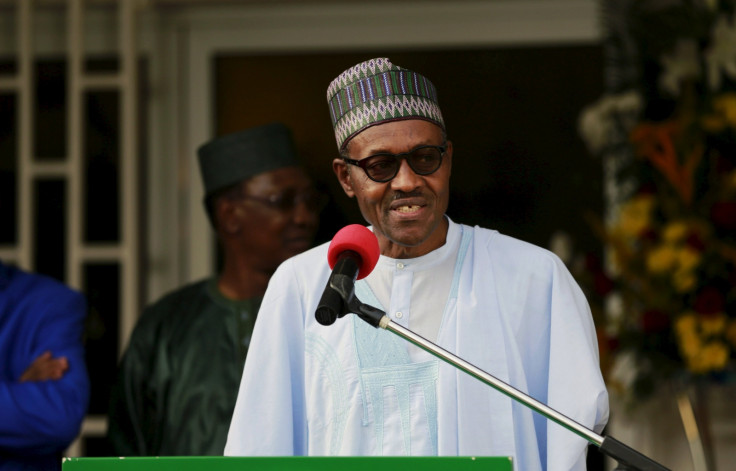Nigeria: President Muhammadu Buhari sets up anti-corruption advisory

Nigeria's President Muhammadu Buhari has appointed an anti-corruption advisory committee to advise him on the country's criminal justice system in his fight against corruption. The committee is formed by seven members and is headed by Professor Itse Sagay, a legal scholar and a human rights activist.
"The committee's brief is to advise the present administration on the prosecution of the war against corruption and the implementation of required reforms in Nigeria's criminal justice system," a statement from the State House said. It added that three international development partners of Nigeria set up a $5m (£3.2m) anti-corruption and criminal justice reform fund that will be managed by Trust Africa, which works to strengthen initiatives aimed at tackling Africa's biggest challenges.
Nigeria
Capital: Abuja
Population: 174,507,53 (2013 census)
Largest cities: Lagos, Kano, Abuja
Major ethnic groups: 21% Yoruba, 21% Hausa,
18% Igbo
Languages: English, Hausa, Igbo, Yoruba
Religion: 50% Muslim, 40% Christian, 10% other
Currency: Naira (N) 1N = £0.0033; US$0.0050
Buhari took office in May after defeating former leader Goodluck Jonathan in March's presidential election. During his campaign, the 72-year-old leader promised, among other things, to defeat Nigeria's corruption and promote youth and women's empowerment in the nation. According to some analysts, Buhari's reputation of anti-corruption leader, which he obtained during his role as head of state between 1983-85 and his career in the army, gained him thousands of votes.
The president recently announced an anti-corruption investigation aimed at recovering some $150bn (£96bn) – mainly originating from 'illegal' oil sale – which he alleged were stolen during previous administrations. The investigation aims to identify banks and countries where the alleged stolen funds have been lodged. The new leader also ordered ministers to use government-approved bank accounts only to pay receipts owed to the government.
In July, Buhari replaced the whole board of the state-run Nigerian National Petroleum Corporation (NNPC) and banned 113 vessels from lifting crude oil from some 27 Nigerian ports amid suspicions the vessels had been implicated in illicit activities.The leader alleged some 250,000 barrels of Nigerian crude oil are stolen every day.
© Copyright IBTimes 2025. All rights reserved.






















